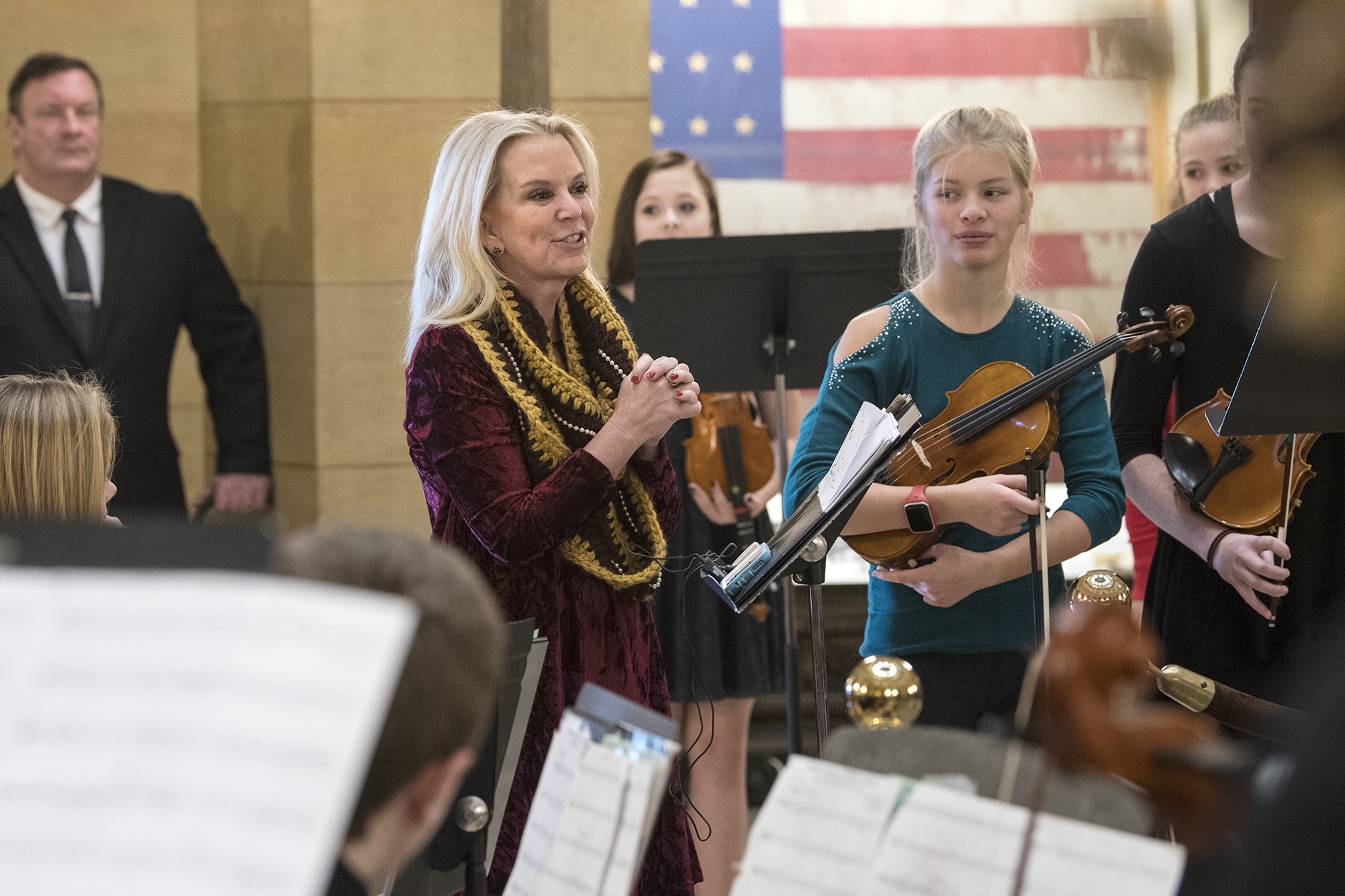In the only divided legislature in the nation, it wasn’t easy — but we did it. After a brief special session, the legislature and the governor came together on a budget compromise that meets the needs of Minnesotans. In addition to providing the first income tax cut in two decades, funding our schools at an historic level, and stopping the governor’s big tax hikes, we passed a bipartisan state budget, response to the opioid epidemic, historic elder care protections, and more.

Here’s an in-depth look at what happened this legislative session:
Landmark elder care protections
Protecting our seniors isn’t just important; it’s urgent. In the next decade, for the first time ever, more Minnesotans will be over the age of 65 than in our schools. That’s why, for more than two and a half years, I have been working with consumer advocates, families, care providers, state officials, and others on legislation to protect our seniors and most vulnerable.
I’m very proud to say that our landmark bill has been signed into law! The Elder Care and Vulnerable Adult Protection Act of 2019 is the most significant reform to state law for elder care in decades. The bill that gives elderly and vulnerable Minnesotans the consumer protections they deserve and brings Minnesota in line with the rest of the nation in licensing our assisted living facilities.
On @WCCO w @esmemurphy this morning talking about the end of session & my elder care protection/assisted living licensure bill that was just signed into law. This is big stuff. And worth talking about… aging touches us all eventually. pic.twitter.com/KuOnMf6lzW
— Karin Housley (@KarinHousley) May 26, 2019
Taxes
As Minnesota finally conforms to federal tax code, Minnesotans will also see the first middle class income tax cut in nearly two decades. The second-tier income tax bracket, which impacts couples earning between $37,850 and $150,380 and individuals earning between $25,890 and $85,060, will drop from 7.05% to 6.8%.
The bill also includes an increase to local government aid for cities and towns, helping fund public safety, infrastructure improvements, and emergency services without having to increase local property taxes. Finally, Minnesota small businesses will also see major relief from a $50 million annual reduction to the statewide property tax.
Remembering Officer Joseph Gomm
On July 18, 2018, Minnesota Correctional Facility-Stillwater Officer Joseph Gomm was killed by an inmate in an on-duty attack. My bill to honor his sacrifice was signed into law earlier this month, officially naming a portion of state Highway 95, from Interstate 94 in Lakeland to state Highway 36 in Oak Park Heights, as ‘Corrections Officer Joseph Gomm Memorial Highway’. Officer Gomm is remembered as a dedicated public servant, devoted friend, and trusted colleague. He paid the ultimate sacrifice, giving his life in the line of duty to keep our communities safe. This is a small token of our community’s appreciation.
My legislation to honor MCF-Stillwater Officer Joseph Gomm, who was killed in an on-duty attack, was signed into law. Effective August 1, Highway 95 from Lakeland to Oak Park Heights will be known as ‘Corrections Officer Joseph Gomm Memorial Highway’ 💙 https://t.co/Lrz6QnnFxG
— Karin Housley (@KarinHousley) May 6, 2019
Education
Public schools will receive a per-pupil funding increase of two percent in each of the next two years – a major investment that amounts to an increase of more than $2 million for Stillwater Area Public Schools, $1.1 million for Forest Lake Area Schools, and more than $850,000 for the Chisago Lakes Area School District. The legislature also approved $90 million to help cover the rising costs of special education and provides districts with funding for safety enhancements.

Transportation
Billions will be invested in Minnesota’s transportation infrastructure – without raising the gas tax, vehicle sales tax, or license plate tab fees. Compared to the previous budget, an additional $275 million will be appropriated for statewide road construction, delivery, and maintenance, spending more than $6 billion over the next two years. The departments of transportation and public safety will be audited next year to ensure accountability and transparency within state agencies and a long-term fix for the fatally-flawed MNLARS program will begin development soon.
Health and human services
Health and human services, the largest area of the state budget, will spend more than $15 billion over the next two years on health care and social services. The budget includes new prescription drug transparency requirements, strong oversight and stricter reporting requirements for the state’s Child Care Assistance Program (CCAP), an insulin program for individuals in need, and significant funding for mental health services to students, farmers, veterans, and other individuals in need. To identify areas of waste and bloating that can be trimmed from the health and human services budget, a ‘Blue Ribbon’ panel will be created to provide the legislature with recommendations for more than $100 million in health and human services spending reductions.
In addition to stopping the drastic cuts from funding for nursing homes, Senate Republicans also passed landmark protections for elderly and vulnerable Minnesotans, including the explicit right of senior care facility residents to place cameras in their rooms and funding for more agency staff to assist with questions or complaints. The successful health insurance premium security program will remain in place – a proven method for lowering health insurance rates for families, farmers, and small businesses.
Jobs and economic development
The legislature passed several measures aimed at providing all Minnesotans with the opportunity to participate in our economy, including additional funding for the Minnesota Vocational Rehabilitation Program, the Youth Skills Training Program, and other public-private partnerships that work to remove barriers to employment. Every Minnesotan who earns a wage should be paid a wage – and that’s why a provision to make wage theft a criminal offense was passed. The budget also funds a grant program to provide employment services for people with mental illness and prioritizes public-private partnerships that work to remove barriers to employment through job training and preparation, particularly in historically-underserved communities.
Other accomplishments
In addition, the legislature passed an additional $40 million for rural broadband expansion, more funding to protect the state against cybersecurity threats, additional funding for dozens of new corrections officers, and an investment in workforce training programs and technical education programs. In addition to passing legislation aimed at making college textbooks more affordable, the legislature also expanded the state grant program and capped in-state tuition at most public colleges and universities in Minnesota. Finally, the budget passed by the legislature made a substantial investment in affordable workforce housing.
